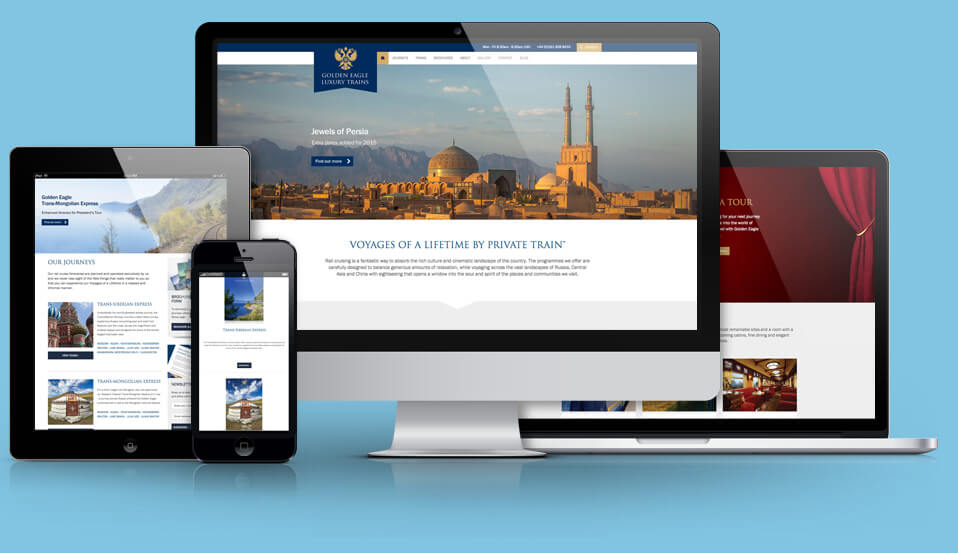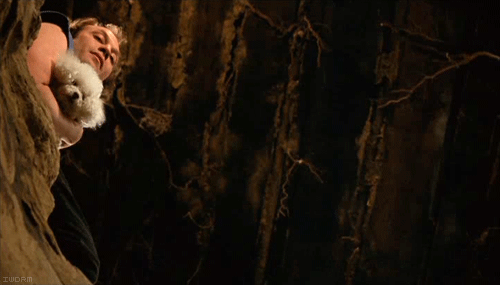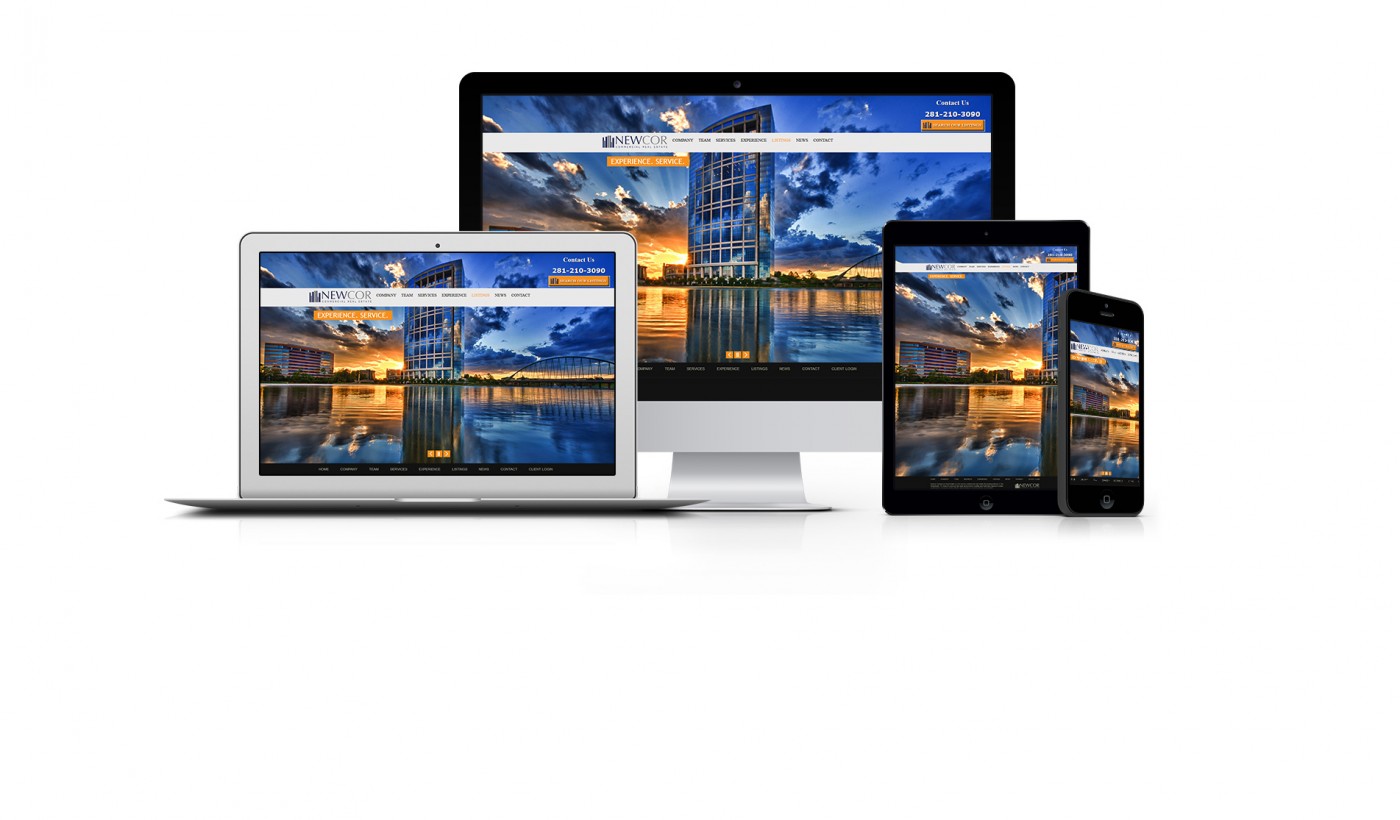
When a person visits a website, they are almost always searching for a very specific piece of information.
As writers and domain owners,we are always quick to assume that we know what that one thing is- people are here because they want to buy our products and services. However, that’s rarely the case…at least not initially.
For instance, you stumbled across this blog post while navigating the Upstate Synergy website. Does that mean you have your checkbook in hand ready to become one of our clients?
Of course not. You want to see who we are as a brand first, how well we know the digital marketing realm and what solutions we offer. And even then, that doesn’t mean you’re here to buy anything.
Again- you’re looking for some type of specific information.
So in order for us to have any kind of chance at turning you into a paying customer, our first and foremost goal is to figure out what kind of information you’re really looking for. The truth of the matter is that it could be almost anything- the possibilities are virtually endless.
That tells us that in order to have great website content, we need to foresee just about every possible need our customers could have when they visit us. We try to do that by-
– Closely watching our website’s metrics and seeing how visitors travel through the site
– Posting contact forms on almost every page to make it easy to get fast answers
– Using FAQ sheets and other compact layouts to get lots of information in small spaces
– Studying feedback in email and surveys to see what info visitors can’t find easily
– Straight-out asking for direct feedback from our current clients
And guess what? We still have large bounce rates at times. That’s because you can’t account for every possible scenario that would cause someone to visit your website. The best you can do is to keep asking questions and study your visitors to have a more complete picture of their needs.
Discovering Roadblocks in the Buyer's Journey
Now, you may be wondering why we go to such lengths- don’t we know our own business and our customers?
Of course we do. That’s not the real problem here.
The real problem is that we know our business too good. And you have the exact same problem. You’re so close to the everyday operations that you can’t fully see the buyer’s journey from start to finish.
Let’s work through a practical example-
A visitor arrives at your homepage. This person falls into your ideal demographic, they can afford your product and they actually need it. They’re an ideal customer in every sense of the word.
Yet, this person doesn’t enter your site on a product or information page- they happen to catch a link in search to your homepage. So they’re looking at your header image, links to different categories and some type of headline. Maybe there’s a few other pictures worked in there or a call to action as well.
The reason this ideal customer came to your site, however, was to see if they can make an online purchase/deposit with a credit card and then receive one of your products/services through a non-standard way. Maybe they want to have a co-worker come by to talk to you about the purchase before making a final selection or set a delivery date sometime in the future.
They look on your homepage for that info. It’s not there. Then they visit your products page. The info isn’t there either. Next they try your FAQ, your contact page and a few more areas- the information they want is nowhere to be found.
So what does this ideal customer do?
While we’d love to think that they’d just call us and ask, modern consumers usually find their backspace key instead. They’re off to another website with the same question.
Spotting the Content Dilemna
You may have noticed these days that major brands are actually using a lot less content on their main pages. This is actually for two reasons-
1) Short, bold statements really stand out to the average consumer.
2) Modern search Optimization focuses heavily on visitor actions.
However, if you look at some of our pages closely, you may be surprised at how much content we packed in there while still keeping a minimal look. For instance, our Lunch w/ Friends page has almost 800 words of content, but most of it is hidden in the accordian section. We achieved similar results on the homepage with sliders, multi-layer text areas and other formats.
Now, you may think, “Nobody ever reads that stuff.”
That’s not true though- almost nobody ever reads that stuff. And we’re fine with that, as long as the one unique person with a specific question can find their answer quickly…or spot our contact form on each page that talks about legendary fast response times.
Along those same lines of thinking, every single page of your website should have a “Learn More” button included in each section. While you or I may get excited over the small summary paragraph, we don’t want to alienate those who need more information and aren’t ready to reach out yet.
That means your website’s sitemap should look like a pyramid where every main page starts with a major category and then branches out for every specific need/problem. Every time you introduce something new, then you should also provide 2-3 additional pages to talk about the different aspects of it.
The Modern Content Layout

Do you see that sexy hunk of modern muscle car above? It pained us to put a sub-header over it because it is so darn beautiful. That’s the new 2017 Mazda RX7.
Let’s knock out a quick examle for using Mazda USA and an example-
The home page would has some great hero images with snappy text. We’d also see our standard product pages, an about us (Why Mazda), a dealer page, shopping tools and a link to some testimonials.
We already know that the average buyer is going to be looking for things like fuel efficincy, overall horsepower, available colors, etc. So they did well by working all of that information in on the homepage or the first landing page for each vehicle. That’s essentially where the pyramid starts- going from the homepage to the eight different models that Mazda sells.
Each major category page also has content that’s light any airy. We love the negative space to make each photo the star, plus they have some handy tools to learn about the specifics. The layout of each vehicle page matches the exact process a salesman would present the car inside a dealership- so that’s perfect for the buyer’s journey.
However, you can’t forget about the car fanatics of the world either. They want real information.
For instance, what’s the rear differential on the Mazda 3 sedan? What’s the recommended mileage for changing the transmission fluid? Does it require premium unleaded?
One the Mazda USA site, this problem is loosely handled by providing product brochures, spec sheets and numberous other resources at the bottom of the homepage. But is that the best way to ensure that the customer sees it?
Definitely not. It personally took me over eleven minutes to find answers those three basic questions.
So while Mazda did well with “read more” and “learn more” buttons for each section, the information shared is simply too generic to meet all customer types. We hit four different dead ends trying to answer basic questions and had to completely start our search over in other areas of the site.
Don’t forget, we’re talking about a specific car from a specific company that we’re already in love with. If this was an example for printer paper or life insurance, we would have given up after 10-15 seconds of looking.
Nobody earns 11 minutes of patience in cyberspace- not even Mazda. After all, he new 2017 Ford Viper is even more gorgeous.
What’s the moral of the story here?
While your website may be beautiful, it’s probably not optimized for customers anywhere near as well as you think. That’s a huge problem that can’t be fixed through design, navigation or different layouts- it takes real content that gives specific answers to questions that we may not have even thought about yet.
If you take one thing away from this article, it’s to find new ways to listen to your customers about what’s really important to them. Then find logical ways to complete the buyer’s journey from homepage to contact, and remember that each of us will likely want to take a different path during that process.
Websites are not meant to be “one size fits all.” That’s called a sales pitch, not a brand experience.
Be sure to let us know if we can help.

Never hire a website designer? What kind of idiot would actually say that out loud? Before you start throwing rotten tomatoes at your screen, just hear me out…
After all, if you want a great cup of coffee, then you would visit the best coffee shop in your town. If you need a new suit, then you go to the premiere tailor around. So why wouldn’t you hire a website designer to help you build a great website?
To put it simply, a freelance website designer is good for only one thing- coding HTML into websites. And for the sake of argument, let’s say that you do need a website built. Should you hire one then?
No. Heck no. Don’t even think about it. That’s a big mistake Mister. Do not hire a website designer and expect random miracles.
Why? The initial coding elements of your website are a minor part of the overall picture compared to things like design, branding, marketing, search optimization and customer engagement. The vast majority of web designers don’t know about any of those things, so they’re definitely not the one you want leading your online face lift for the masses to see. Choose a creative design firm instead.
If that’s not enough to sway you to never hire a website designer, then here are 27 more things to consider-
Do You Know Content Marketing?
1) Can you speak in HTML, PHP or Klingon?
Let’s start with what websites designers are actually good at; programming in languages like PHP and HTML, plus brushing up on their Star Trek lingo for this summer’s Comic-Con. Since you don’t speak these languages though, then you’re going to have no idea how to make any adjustments.
2) Do you care about customer service at all?
Besides, have you ever asked a website developer for help understanding something? That’s like asking Gollum from Lord of the Rings for fashion advice…there’s simply no answer to the equation.
3) Are you a genuine WordPress expert?
Let’s say that you do hire a website designer and they deliver you a site as promised. Now what? Do you know your way around WordPress enough to actually turn an empty domain into a place that potential customers would want to visit?
A website designer is a person who takes instructions and works with code to make your idea come to life. But well over 90% of them now very little about how to attract customers or make a website become popular.
4) Do you enjoy overpaying for imaginary services?!?
Besides, most of today’s web developers still work on an old-school monthly-rate plan, which means that you pay for your website up front and then shell out a large chunk of change each month for site maintenance and other imaginary services.
Well, guess what? You don’t need to pay someone to sit idle and collect monthly fees for absolutely nothing. Don’t EVER hire a website designer under these conditions without spelling out exactly what they’ll be doing for you each month
5) Do you enjoy being frequently lied to?
Now, we’re not saying that website designers are liars, because most of them have the best intentions in the world when they say that they can design your new website from top to bottom in a few weeks. But again, they’re thinking about code and the bare minimum of back-end stuff to make something qualify as an actual website. All of your content marketing, lead banners and images in place are a completely different story.
If you hire a website designer with the sole intention of driving sales or attracting new customers, then that’s the very first question you should ask- can you prove that you can do that kind of stuff?
6) Do you follow the latest SEO algorithm trends?
If you do then that’s great, because your web designer almost certainly doesn’t. He has to keep up with new programming languages and the latest apps/tools instead. That means you’ll have to do a lot of reading on Moz and HubSpot for hiring a website designer.
There’s another inherent problem here though- and that’s Google’s inherent love towards innovative online businesses that strive to make customers happy. If you hire a website designer that’s not studying these trends and continually expanding their strategies, then you’ve already lost before your website is even built.
And don’t even get me started on those “specialty website design firms” that essentially sell everyone the exact same website over and over again- the automotive world wastes billions of dollars every year on websites that will never, ever draw customers because of poor design and horrible SEO.
7) Do words really matter at all?
Most website developers will quickly volunteer to write your website’s content for a nominal fee, and then turn around to do one of two things-
· Hire a writer from India for $2.36/hr., who sub-contracts it to a gal in Pakistan for 1/4th that amount
· Write the content themselves…which makes the Pakistani look like a true poet in comparison
Either way, none of these people are brand experts that can help you drive in conversions. And if pleasing customers and making sales isn’t a priority, then there’s no sense in having a website to begin with.
8) Can you create an effective banner ad?
Since sites like Canva and BeFunky make it easy for almost anyone to get their art on, then maybe you can crank out a decent looking banner all by yourself. But do you know how to upload it and link it to your squeeze page? Can you configure it with your lead generation software?
Probably not…and neither can your web designer. That’s why you never hire a website designer to handle creative aspects of your domain (HINT- which should be the ENTIRE FREAKING WEBSITE!)
9) Do you like people who overstate their credentials?
Unfortunately, most website developers earn a bad rap because people have no idea what they’re looking for when hiring a professional. So here’s a little cheat sheet-
- Web developers install themes and write code
- Programmers create apps, often from scratch
- Designers make pretty page layouts & graphics
- Copywriters and bloggers handle your site’s content
- Marketers focus on traffic and generating leads
- Analysts dig deep into the data to find insights
Very rarely will one person have some serious skills in all of these areas since each can take decades to master. That’s why you hire a digital marketing team instead of a web developer.
10) Do you prefer face to face business meetings?
If so, then your boss will either laugh or cry when the “website guru” you hired shows up in the board room wearing cutoff jeans, a tie-died tee shirt, and flip flops. Either way; you’re probably in for an ear-full from the VP of Common Sense after the meeting adjourns.
Not that web designers can get dressed up for a meeting, mind you…that’s not really the point here. You need a firm representing your brand online that understands business, marketing, sales projections, customer loyalty and all that good stuff that really matters.
11) Does your company work late-night?
If so, then hiring a website developer may not be such a bad idea after all. That’s because a large portion of the top web geeks tend to work well into the night and sleep until noon…just because they can.
Between that and Halo tournaments, that’s essentially why it takes three weeks for you to get a simple answer.
On the bright side though, if you hire a foreign web designer then his nights are your days so everything works out perfectly! That is, as long as you have enough time to overcome the language barriers.
12) “It puts the lotion on its skin, or it gets the hose again!”
What, you don’t like random pop culture quotes forwarded to your inbox sixteen times a day? Then let’s hope that you didn’t accept your web developer’s Facebook request…that’s where the real magic happens!
Seriously though, coders are a special breed that don’t always march to the same drum cadence as the rest of society. That doesn’t make them any less dependable, mind you, but most are simply not made for the board room.
13) How important are overall results anyway?
Let’s say your boss is a big AC/DC fan and he wants the song “Highway to Hell” to auto-play on your homepage as soon as new visitors arrive. Sounds like a pretty terrible idea, right?
Well, too bad for you that the web developer you just hired could care less about what may seem like a good or bad idea. Their only job is to build a site and get paid…they could care less about results. And once your boss realizes that heavy metal misses the demographic , guess who gets paid all over again? Cha-ching! Time to hire a web designer all over again.
Go ahead and click play though- you know you want to. Better to get it out of your system now.
14) Hey look, the homepage is giving some random 500 error…
Oh, you actually believed that random web developer when he said that you can call him day or night? Sorry friend, but it’s a Buffy the Vampire marathon weekend and definitely not a good time. Maybe try back next Tuesday when his mom will be there to pick up the phone…
Seriously though, you want to hire a website designer that has a long history of great customer service. At times it will fell like you’re married to your design firm since they play a vital role in practically everything your company does. So focus on your relationship early and makes sure all lines of communication are wide open.
15) Are you looking for results-based quality?
Surely by now you’ve seen a little bit of a pattern forming here…it’s not just in your head. The average web developer knows absolutely zero about actual design, marketing, search optimization or your customers, so they can only deliver a mere fraction of what you’re looking for.
That’s what I’ve been saying all along here; do not hire a website designer if you’re looking for the total package. Such a person doesn’t exist in the modern world unless you’re looking to spend $150/hr for the next 18 months.
Can You Afford a Rockstar Designer?
16) What if I want to work directly with a top-level programmer?
Here’s a little secret for you- the rock star programmers in today’s world are earning comfortably in the six-figure range creating apps and future technologies. The few that do develop websites are often either-
· Making their own custom themes and affiliate sites, or
· Earning a huge paycheck with a top-tier agency/corporation
Either way, there are only a small handful of top-tier website developers out there that still build websites from scratch. The rest use platforms like WordPress or Joomla.
17) Okay, but what if I want a website built from scratch anyway?
Well, that is the way to go if you are a large company with 6+ figure online sales and millions of web views per month. Clean code from a professional will easily pay for itself in no time, plus save you countless headaches. So in this one very specific case, you need to hire a website designer…through a design firm.
Why? Remember how arrogant Tom Cruise and his fellow fighter pilots were in the movie Top Gun? In real life, a superstar coder is likely going to be five times as self-righteous and twice as quick to defend their excellence.
These types of work relationships almost always end badly without that designer being on premesis and working as a part of a team. Think epic proporations bad.
18) Do you take deadlines even halfway seriously?
Was Picasso given timelines when creating a masterpiece? Heck no…and he didn’t even know C+ Basic. So when you’re braving the world of programmers and building something from scratch, there’s no such thing as a timeline for actual launch. You can be given estimates, but definitely not any sort of deadline.
To be fair, you can experience this type of setback with any reputable design firm if communication breaks down or you simply like watching underlings dance in terror. That’s why you never want to hire a website designer without properly vetting them first- grab the phone and call a few of their previous clients directly. Just because their site is pretty doesn’t mean it didn’t finish six months late and $15k over budget.
19) What if I just skipped using a web designer completely?
Oh, you mean like one of those free website builders that allows you to launch a complete website in 15 minutes? That’s a great idea…except that they absolutely, positively suck. Not only do they vastly overcharge you on a monthly plan to move forward, but the “plug and play” coding is also a jumbled mess that the search engines hate.
So if you’re going to be a do-it-yourself type, then buy a premium WordPress theme and find a highly rated foreign WordPress expert on Upwork to install it. This will save you a small fortune if you can serve as your own tech support and figure out the content/marketing elements on your own.
20) Wait- there are cheap AND talented foreign website developers?
Definitely, and you can find some world-class developers from Pakistan, India and similar regions for less than $200 a week for full time work. But be warned; there are many language and cultural barriers that will drive you absolutely nuts if you don’t know what you actually need completed.
These are super-friendly, hardworking people that really aim to please…just be prepared for quite a long trial and error period. If you do hire a website designer from overseas, then it would be a great idea to start with a consultation from a reputable digital marketing firm here in the USA (hint, hint- that’s us!) and have them manage the project with your cheap labor.
21) Are you a true patriot?
Of course you are…so why are we talking about hiring foreign web developers and putting some hard working American college graduate out on the streets? You should be ashamed of yourself for even entertaining the notion!
Then again, what’s more American than saving money on business expenses? There are certainly pros and cons to hiring individuals overseas so I’ll let you decide how to proceed there.
What About Other Online Factors?
22) How versed are you on finding and optimizing keywords?
These days, it is almost impossible to appear on the first page of the search engines for your major keywords by accident. Ranking a website is a process that’s both time consuming and highly technical; plus it takes a creative flair and a solid understand of consumers to execute correctly. So this person with a multitude of talents either needs to be on your staff (likely for six figures), or it can be part of a creative team working on your behalf.
For you to hire a website designer that has all of these skills though, it will be like finding a needle in a haystack. Unfortunately, the only way a designer becomes the total package is by sheer experience working with a number of leading companies and start-ups while wearing a number of different hats. And quite honestly, these types of folks usually get hired by major corporations before you’ll ever find them.
23) What is your actual end goal with web design?
Most people would answer this question by saying, “I want to make more sales or gather more leads.” That’s what we all want from our websites. But the only way to achieve that is by having a fully optimized website that engages your customers and answers their most pressing questions.
Remember that getting the customers to your domain is only half the battle…the rest is convincing them to stick around and actually experience your brand.
24) Who’s going to hold your web developer accountable?
Hopefully you’re not the type that listens to some fast talking salesman and then says, “Sure, let’s run with it!” Since you don’t personally know website design or the many other skills it requires to make a website rank favorably, it will be impossible for you to hold a web developer accountable or even guide them in the right direction.
That means you either need someone on your staff that understands tech or you need to partner with a firm that has earned your trust through delivering actual results. If you just hire a website designer off the streets though because you saw their spammy ad on Facebook, there’s very little chance that they’ll have your best interests at heart. After all, they’ve already proven that they have a quantity over quality mentality.
25) Who’s keeping an eye on your competitors?
Large corporations spend millions of dollars per year analyzing their competitors and creating campaigns to counter their rival’s latest moves. And on a smaller scale, you should be doing the exact same thing with your website and everywhere you keep an online presence.
Is the guy who writes website code the best person for this job though? Not by a longshot…you’d be better off hiring the average 7th grader to take on the job. At least you can keep them focused with a juice box.
26) How do you measure success and failure online?
When a website visitor stumbles on your website, how do you know whether they had a great customer experience? Where’d they even come from? What do they want? Is anyone actually paying attention to this sort of stuff? You need answers to these difficult questions and very few website developers are qualified to be the one interpreting it.
If this is starting to sound like a broken record, that’s because you should never hire a website designer that doesn’t talk about conversion rates, click-through rates, time on site and all the other metrics that mean your customers are actually being engaged.
27) Why are you so negative about website developers anyway?
Like I’ve mentioned several times already, I have nothing against web developers since they are essential for both my business and yours. I just want for it to be crystal clear in your mind that website development is a very small (although important) aspect of your complete online presence. Web developers are generally weak at copywriting, photography, graphic design, search optimization, lead generation and marketing…which are all vital to your success.
So you absolutely, positively need to hire a website designer…but you don’t want that person in charge of your overall campaign. Would you recommend an awesome mechanic to be the next VP of Marketing at Ford or Chrysler? Of course not- the same principle applies to hiring web developers.
Have any good horror stories from hiring a website developer? Did I miss something in my list? Feel free to share away in the comment section below.

 Do you ever get the feeling that if you could only talk to some of your ideal customers and show them that you’re the real deal; that it could really change things in a dramatic way?
Do you ever get the feeling that if you could only talk to some of your ideal customers and show them that you’re the real deal; that it could really change things in a dramatic way?
I was thinking about that today when I realized that I have more clients in Los Angeles, Detroit, or Chicago lately than I do in Spartanburg County. Sadly, my local networking has really been lacking in recent years because I stay so busy with larger national clients. At the same time though, I started Web Synergy years ago because I wanted to impact local businesses right here in Greenville, Spartanburg, and Asheville…so it’s time for some serious changes.
I decided to start a new “Lunch with Friends” campaign for Spartanburg County and the surrounding cities, and it basically works like this-
- Visit my online calendar and choose a date to sit down for lunch together
- When we meet I’ll answer each and every one of your online marketing questions
- I’ll help you create an action plan to optimize your website and fix any issues
- We will also look at the fastest way for you to start gaining new customers online
- I’ll waive 100% of my consulting fees as well…just pick up the check
What am I looking to gain from this?
As I said, I would prefer to have all of my clients locally within the next few years. I would rather help you out today for free and make a new local contact to network with, or possibly even gain your business. But either way, you’ll receive my expertise and we both walk away big winners.
So if you’ve been wondering how to significantly boost your online presence, this is the perfect time to learn about search optimization and online marketing from the top authority in the southeast. I’m looking forward to meeting you soon!

I had an interesting conversation with a local restaurant owner in Costco the other day as he tried to push his enormous cart of mozzarella, spices and tomato base towards the checkout counter. As a former Italian restaurant owner myself, I knew his story without even having to ask- his vendor undoubtedly messed up and good old Costco is always a solid last-minute bail out for our kinds of businesses. I could instantly feel his pain since I was in the exact same position myself dozens of times.
After sharing war stories for a few minutes about incompetent delivery drivers and the perfect blend of cheeses for pizza, the owner asked me if I knew anyone that would be interested in buying his restaurant. He explained that while the business was still profitable, it seemed like his customer base had continually shrunk over the past five years even though he’s remained highly competitive on his pricing and delivered a great product.
Then I told him what every restaurant owner needs to hear- online marketing is essential for every restaurant in the Spartanburg area, regardless of how big or small they are.
Why? Think about this for a moment. How do you order a pizza these days?
For my family, we hop on our smartphones, look at the current specials and then submit our order online…and that’s how over 70% of America does it these days. That means if you’re still handing out flyers, placing newspaper ads and using other forms of traditional marketing these days, only 3 in 10 people are even noticing you.
For example, my family loves Sidestreet Pizza over in Tryon. Besides the long wait times, I honestly couldn’t say a single negative thing about it. The service is great. The food is great. I love the atmosphere. Yet, I haven’t eaten at Sidestreet in at least 4 years. But I’ve ordered from Dominos, Papa Johns and The Pepperoni Express in Inman dozens of times since then, all because they have a solid online presence and I can see their specials quickly.
Are franchises like Pizza Hut better than Sidestreet? I don’t think we even need to dignify that with an answer. But the big chains are making a huge effort to cater to today’s consumer and that simply makes them more relevant. People will literally settle for food from an inferior brand simply because that’s what they see in the search engines.
And as I explained this to this restaurant owner in Costco the other week, he sort of hung his head in defeat since he didn’t know anything about internet marketing. Even if I built him a great website, he said, there was no way possible that he would be able to keep up with updates and things that would make him stand out.
He also mentioned that cost was a major issue…and I realized that he wasn’t just trying to sell his pizza restaurant; he was on the verge of going out of business completely. That’s the only reason why I’m not sharing his name or his location (yet). Stay tuned for updates though, because I am actively working on his search optimization as we speak.
Now, I could completely relate to his situation. When that bad ice storm hit Spartanburg back in 2003 and my restaurant was without water/power for over a month, I had no idea how to get my customers back fast enough for it to really make a difference. I was underwater in debt and the idea of a website would have been laughable for me just like it was for this person. But then again, I didn’t know back then what I know now…and you can’t ignore that 70% of all consumers perform a Google search before heading towards a local restaurant.
Since I definitely don’t want any other local restaurant owners to feel this way, here’s a quick cheat sheet of simple things you can do to drastically increase your online presence on a tight budget-
- Build a Facebook and a Google Local business page, and start a campaign for people to like your page. My favorite for restaurants is giving customers a $3 off coupon or a free side item for following you on social media…and you’d be amazed how quickly it will be shared and deliver traffic to your doorstep.
- Take the time to register on at least a dozen directory sites like the Yellow Pages, Zomato (formerly Urban Spoon), TripAdvisor, etc. Create complete profiles there and offer a special unique to each website, and be sure to add some photos of your mouthwatering food.
- Ask your best customers to leave reviews for you on those directory sites in-house for an instant $1 off their check total per person (per review). If you’re doing this regularly, then you can simply raise your menu prices by $1 and all the reviews are free.
- Build a restaurant website using one of the free online tools or contact me to create an affordable website for you. Then add the essentials- great photos, a full menu, daily specials, directions via Google Maps, a food blog, etc.
- Use the same tactic to get customers to opt into your email marketing campaigns; just give them a great one-time special to share their email addresses.
- Once you’ve completed the social sites, directory sites and your own personal website, start sharing fun facts about Spartanburg, cool photos, daily specials and other information people wouldn’t mind reading.
- Likewise, every time you post a blog or a new special, share it straight to your social sites for people to see it. Then send out a weekly email recapping what you’re doing for customers.
Now, you may be thinking that most of those things are far outside your comfort zone, which is exactly what the restaurant owner inside Costco told me as well. But then I asked him- how many times a night do you have to tell your younger employees to get away from their smartphones? Fifty? A hundred? Every one of them is a social media genius- they just don’t realize that their talent for wasting time online can actually become a massive resource from a business standpoint.
And honestly, I do not recommend the free website builders like Weebly since they are hard to customize and rank effectively. But if you have to choose between doing nothing and launching a basic website…go the free route every single time. While it certainly can’t hurt, the help it could deliver is enormous.
So if you can’t afford to hire me right now, then put your youth to work knocking out the above list and improving your online presence. You will be absolutely amazed at how quickly it makes a difference…I’ve seen restaurants go from on the verge of closing to being on track for $50k+ months in a matter of weeks. It just takes a substantiated effort of communicating with your customers and giving them reasons to pay attention to you online.
If you have any questions about how to market your restaurant online or you need a little more guidance on making your location profitable; then feel free to contact me through my online form to set up a consultation. Since restaurant management will always be in my blood and I love having the chance to make a difference here in Spartanburg, the initial consultation will only cost you lunch. Hopefully you know somewhere good to eat. =)

If you’re like most business owners in the digital age, then you probably measure you’re website’s effectiveness by the number of customers that it delivers to your doorstep. The more daily foot traffic that mentions seeing you online, the more time you invest on creating a great web-based user experience. And that’s great IF your website is creating fresh leads on a regular basis.
On the other hand, the #1 reason why business owners neglect their online presence is because they are not receiving an influx of customers from it, and then they illogically assume that it is because people are not looking online for that type of product/service. We all know that’s inaccurate though since people use their smartphones for everything these days. Just look around you…people are likely visiting your competitor’s websites while they’re inside your store shopping.
If you’re not sure if you’re one of our local Spartanburg faithful that’s neglecting their website presence, then here are five things you should be doing routinely-
Posting Fresh Content
Every time you post new content to your website, it’s like sending a distress beacon to Google that says, “Hey, look at me…I care about my customers.” And in turn, the search engines will begin to visit your website more often to ensure that your readers can always access the most recent content from the search engines. The beautiful thing is that fresh content doesn’t have to be elaborate articles either- it can be new product descriptions or new services/items, video and photographs, or even updates to existing pages.
Changing Your Homepage
Likewise, changing up your homepage even a little bit can have profound effects on your customers. That’s why all the big businesses switch up their homepage graphics frequently; it keeps the site feeling new and fresh without changing the actual navigation. So even if it’s just adding some new photos to your slider or adding a few banners, these changes really do matter in the grand scheme of things.
Social Media Updates
Whenever a consumer visits you on social media, the very first thing they do is look at the last thing posted by your company. And if the date is several months old, then that tells them that you’re not very interested in communicating with them. The crazy part is that you can post anything on social media to keep those engagement levels high- it can be anything from store branding to photographs to news content and local information.
Using Outdated Contact Forms
If a customer has to look at your website for more than three seconds to find your email address, phone number, store location or hours of operation, then you are seriously neglecting your website. In fact, this is the number one reason why consumers leave a website shortly after visiting it for the first time; they simply do not have the patience to hunt down information that you should display on every page. So if you’re guilty of this, fix it immediately.
Offering Very Little Core Content
Likewise, there is absolutely no excuse for not having great descriptions of what your business does, what products/services are available and why consumers should trust in you. This is the core of any great website, yet all of us come across horrible domains every single day that can’t answer even basic questions. Since this type of content also highly influences how well your website ranks, it is absolutely critical for your long term success.

Let’s pretend for a moment that I am your ideal customer.
And when I say ideal, I’m not talking about someone that wants to speak to your sales staff or register for a product demonstration. I mean that I’m THE customer; the one whale of a client you’ve been hoping to land for years that will change the entire scope of your business and its bottom line.
So I’m your ideal customer…only I don’t know it yet because I haven’t found your website. At this very moment, I am sitting here staring at my Google Search screen and thinking about how to find you. Am I feeling lucky?
Now, you’ve probably read on some of the authority sites like Moz, HubSpot and Search Engine Land that the design elements of your website really don’t matter that much in the grand scheme of things. After all, search optimization is all about things like content, backlinks and social signals, right?
Well, let’s play this out anyway just for fun. Say that I am the Michael Jordan of your industry.
If I find your website, make a purchase and tell the masses about it, then those sweatshops over in third-world countries are going to have to make children work triple-overtime just to keep up with all the frenzied demand (sorry Nike, but you still suck for exploiting kids).
Maybe that was a bad example, but you get where I’m going with this.
So I do my quick little Google Search, stumble across your website and decide to take a look around. Let me ask you a question though; what are the first three things that I’ll see?
And just so you know, it’s not the logo or your tag line.
This was actually a trick question though, so don’t feel bad if you already got it wrong. The first three things I will see are-
- How fast your homepage loads. If it loads slowly, I’m hitting the backspace button.
- Your main banner image (or lack of one). If it’s ugly, I’m leaving.
- A link to what I want to buy. If I don’t see it right away, then I’m gone like the wind.
Now, I probably should have explained our game of pretend just a little bit better. Because when I said that I am your ideal customer, I really didn’t mean me personally.
Instead, I meant that I am pretending to be your ideal customer since I understand their buying process from decades of web design, online marketing and search optimization experience. That lets me know exactly how he or she will react when they’re looking at your website.
And with that knowledge, I can tell you that great web design is everything in the world of online marketing. In fact, it is even one of Google’s biggest signals to your website’s overall quality- it’s called your bounce rate.
Have you ever wondered why your website’s bounce rates are so high? It’s not really a secret- people just don’t have the patience to look around on the Internet anymore.
Take my mom, for example- the woman will drive to eight different grocery stores and call a dozen more if her supermarket stops carrying one of her favorite brands, plus she will ask every single stock person, manager and bag boy she sees. Trust me; it is embarrassing to shop with my mother when Ingles doesn’t have any Pinwheel cookies on the shelves.
If she’s looking for that exact same item on a website; she looks for maybe fifteen seconds maximum…then she gets in her Chrysler to go look in the next town over. And I am afraid that my mom is a pretty average consumer. Your customers do the exact same thing every minute of the day.
So, let me ask you again- does web design really matter for search results? The answer is a resounding yes.
Here are just a few of the factors that make or break your website-
- Fast loading times. If I can see the page loading, then it’s too slow
- A great top banner photo (or multiple photos if you use a slider)
- A crystal clear navigation. Anything I want to know should be 1 click away
- A healthy mix of links- some people click text links, others only click photos
- If I see a popup, I’m running like mad. People have grown to HATE popups
- Numerous trust elements (about us, testimonials, photos, videos, etc.)
- A nice layout with enough text for me to know what’s going on
- Proper formatting. People really like paragraphs, commas and periods
- At least one convincing call to action, and multiple means of contact
- An address and phone number to your store. A Google Map gets bonus points
Just to be clear here, most of the things I just named have nothing to do with search engine optimization. Google really doesn’t care if these things are there or not, as long as your visitors are sticking around and visiting multiple pages. So great web design really can’t help you a whole lot- but the opposite is like posting one of those radioactive materials signs on your homepage. People simply will not stick around to see what happens.
So here’s what I need for you to do.
Open a new tab in your browser and pull up your business website. And once it’s loaded, I want you to look back at that list of bullet points one more time and make sure that you’re absolutely nailing every aspect of your core website design elements. Because if even one of them is an issue, then you are literally chasing away potential customers without even realizing it.
Again, please do not confuse web design with search optimization- they are two completely different things. SEO is by far the more important factor for you to achieve solid rankings and gain visibility. But then again, without a good looking website it’s not going to help you.















 Do you ever get the feeling that if you could only talk to some of your ideal customers and show them that you’re the real deal; that it could really change things in a dramatic way?
Do you ever get the feeling that if you could only talk to some of your ideal customers and show them that you’re the real deal; that it could really change things in a dramatic way?






